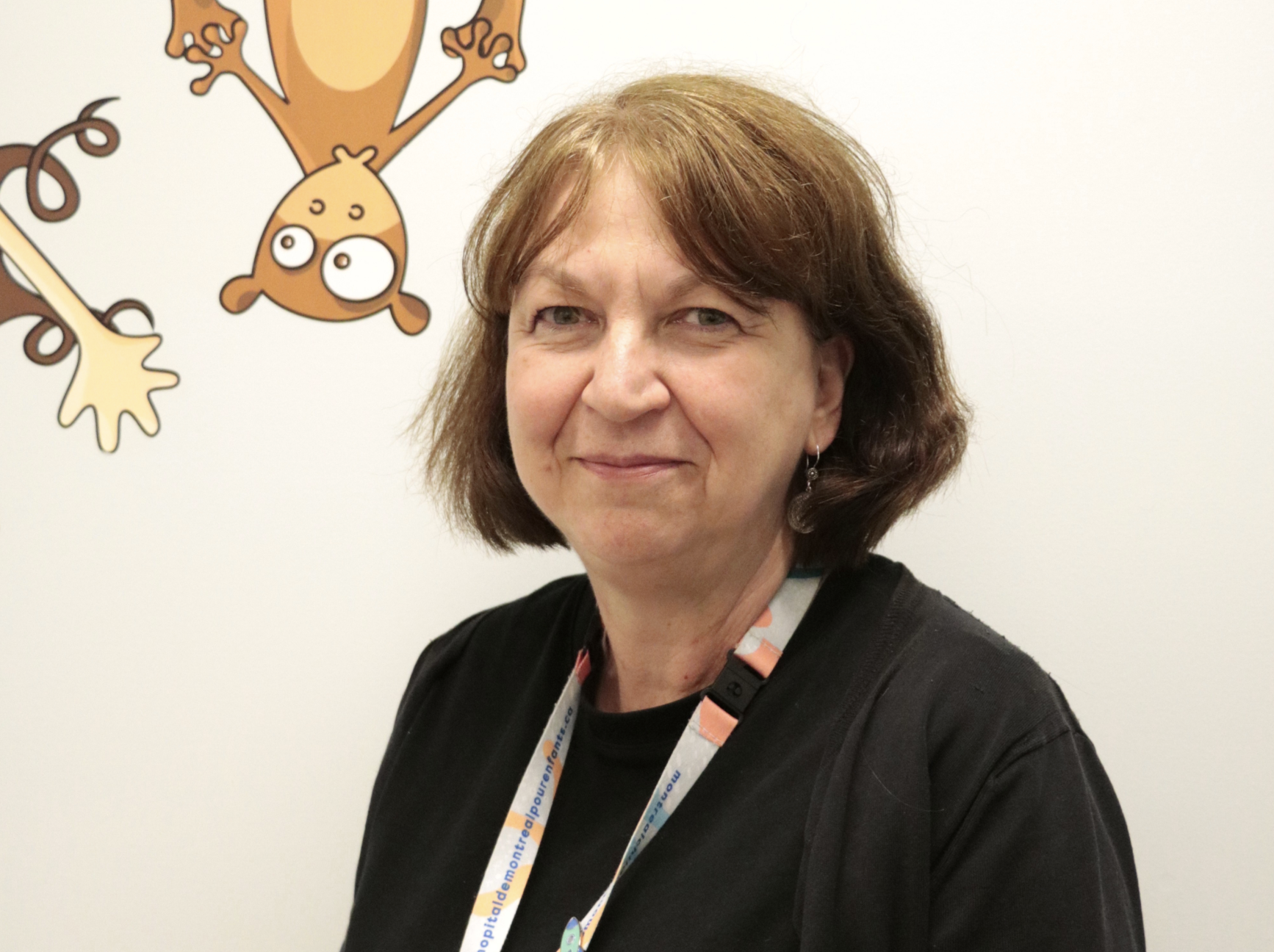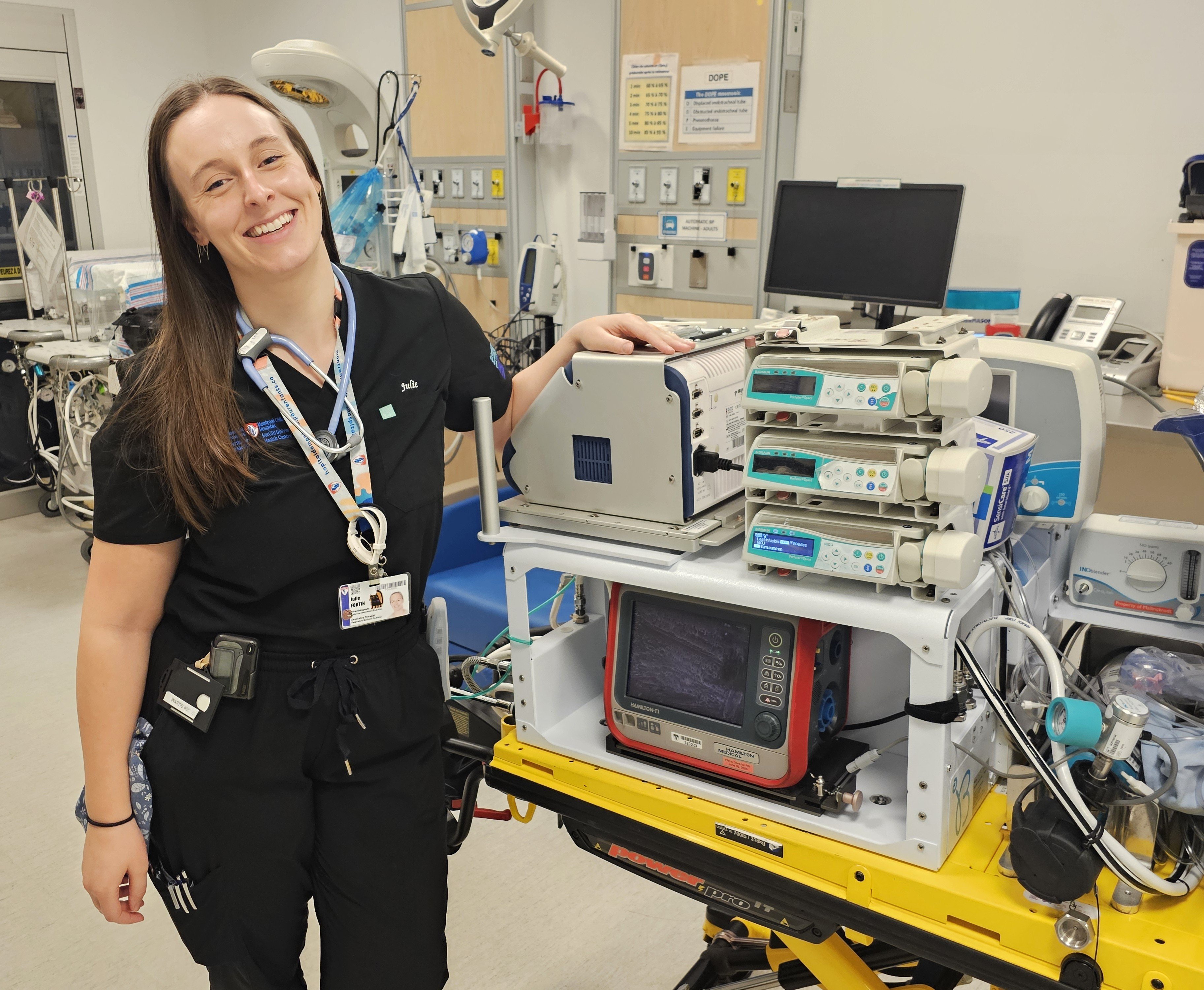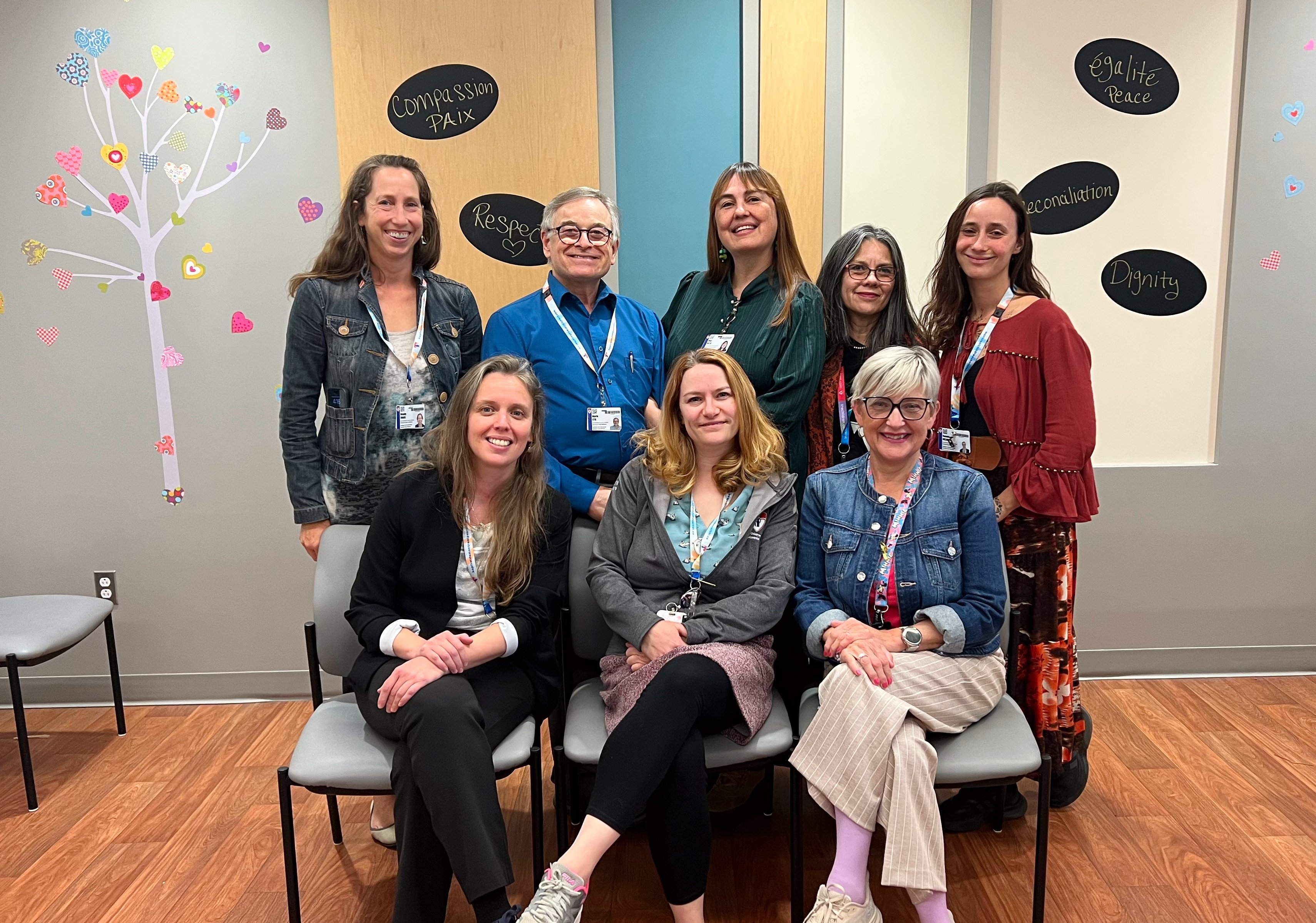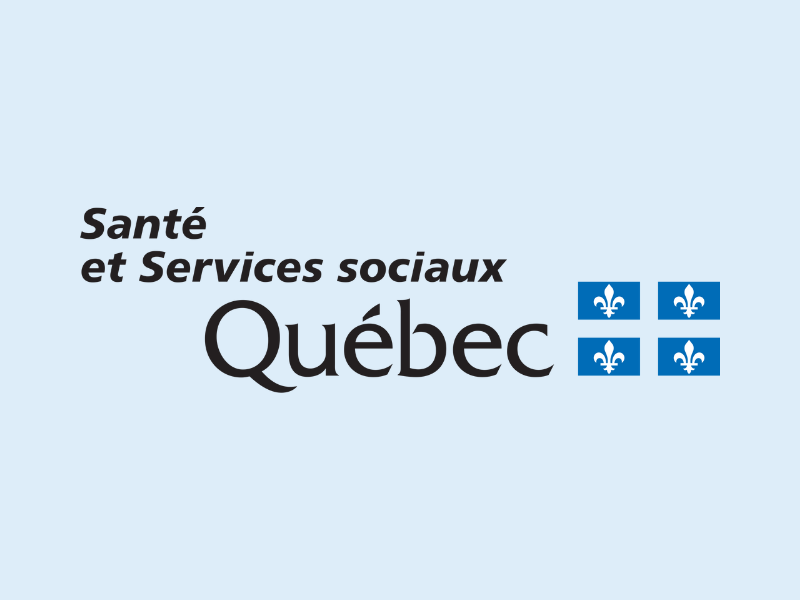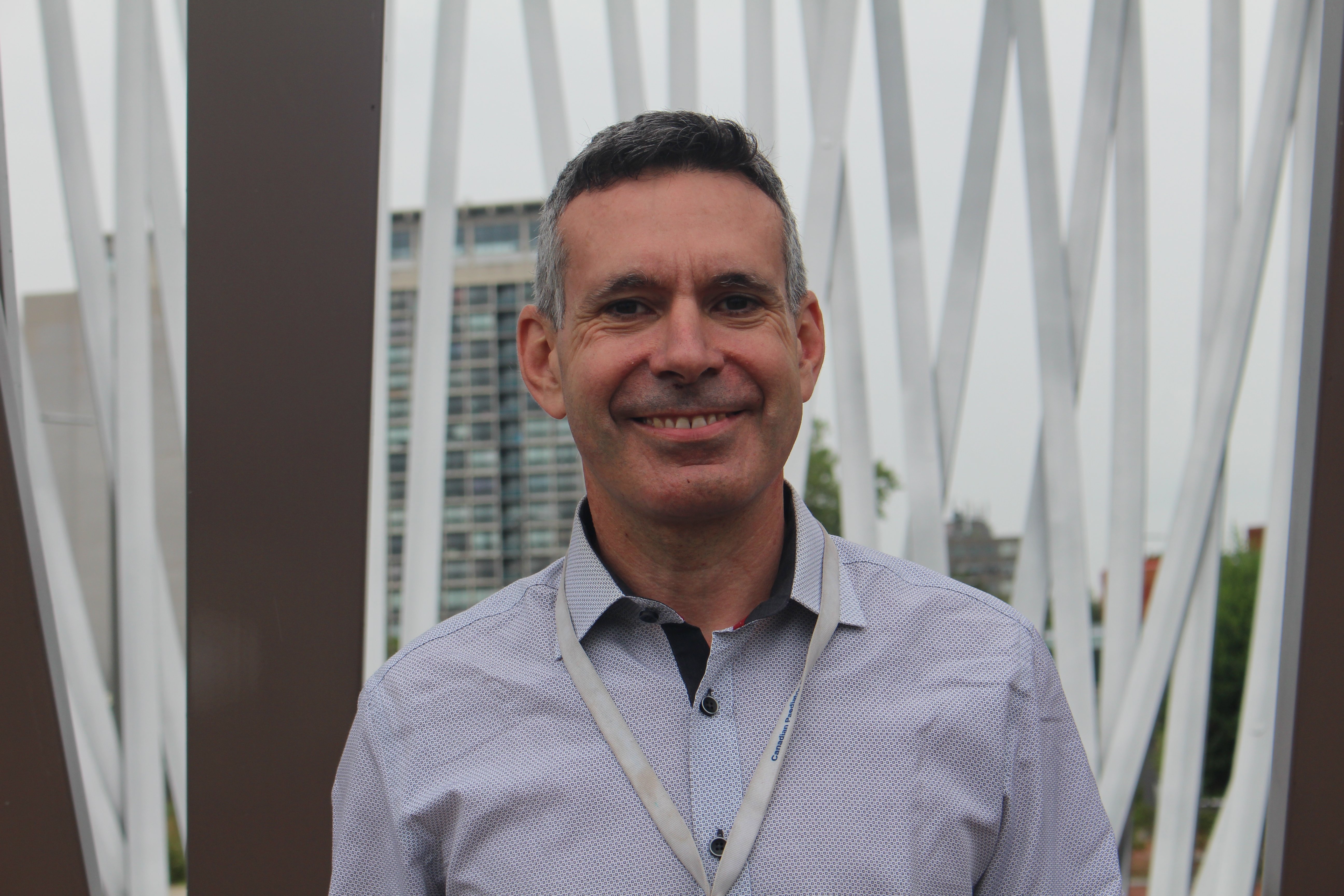
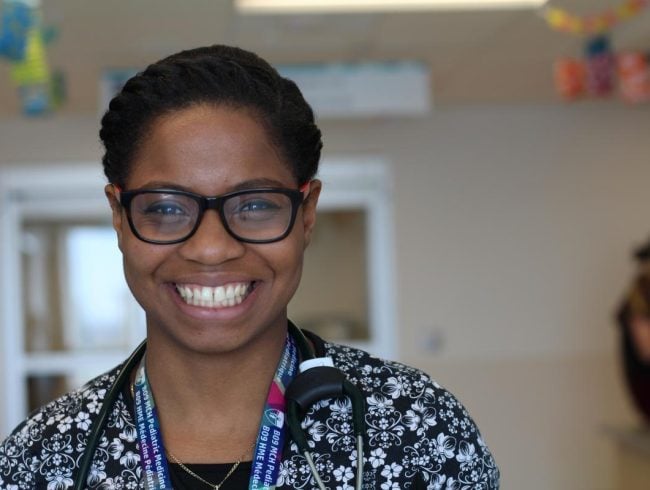
Celebrating National Nursing Week: May 8th to 14th, 2017
3 May 2017
National Nursing Week is celebrated the week of May 12th – the birthday of Florence Nightingale, the founder of modern nursing. At the Children’s, our nurses work in highly specialized units, departments and clinical teams and collaborate with various health professionals to provide the best possible care to our patients and their families day in and day out. Please join us in thanking them for all they do!
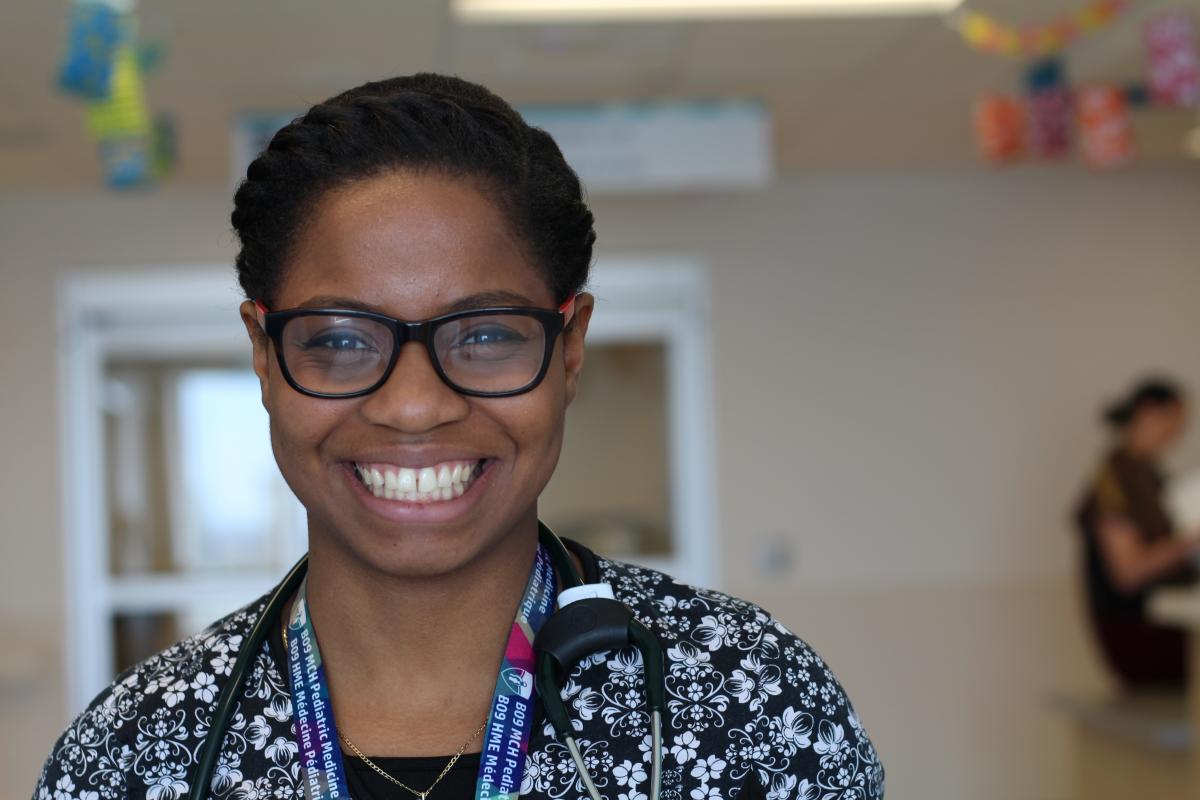
Laurie Cleophat, Clinical Instructor and Bedside Nurse
After completing her Master’s degree in Nursing at McGill University, Laurie Cleophat began her career as a bedside nurse at the Children’s on B9 nearly three years ago. But for the last year, she’s devoted more of her time to teaching a new generation of nurses, as a Clinical Instructor for McGill University Nursing students – a new role that allows her to get creative and to confront her work with a fresh perspective.
“I like the idea of investing in new nurses,” she says. Laurie is not only responsible for exposing students to different patient cases, but to all aspects of the nursing role on her unit. “I’m a more hands-on learner, so I like to discuss cases with my students so that they can translate the theory of what they’ve learned so far into practice. Helping them make that knowledge transfer not only helps cement my own understanding of my patient population, but it pushes me to evaluate my practice too.”
Having fulfilled the role of a Clinical Instructor for a year and a half, Laurie says she feels most rewarded now that some of her first students are approaching graduation and contacting her about their future plans. “The reason I decided to become a teacher was to be able to invest in others’ success,” she explains, “so when I get emails from former students who have now completed their training and they’re asking for references because they’re on their way to achieving their goals…that’s the best feeling. It feels great to see them do well.”

Soo-Lin Ng, Discharge Coordinator
When patients with complex care needs are discharged from hospital, they often need specific resources in place to ensure that they can go home safely. Sometimes they need access to highly specialized equipment, and in other cases, they need to be able to rely on the presence of a nurse for several hours every day. Coordinating the discharge for a patient who must rely on a number of outside resources requires careful coordination and the help of people both inside and outside the hospital.
That’s where Soo-Lin Ng gets involved. For the past 4 years of her 18-year career as a nurse at the Children’s, she’s occupied the role of Discharge Coordinator: helping to get equipment and mobilize resources from the community to help patients with complex health conditions make the transition from hospital to home, where they belong. “As great as we are at the Children’s at providing care to our patients, at the end of the day, it’s still a hospital,” she explains. “Children thrive most when they are with their parents in a home environment and can develop their own routine. So that’s my goal: to get patients where they need to be as quickly as possible.”
It’s a challenge that is both extremely rewarding but can also be frustrating, especially when she encounters road blocks. “It can sometimes feel like we are moving at a snail’s pace,” she explains. “But when I’m able to finally see a patient go home after a very long time in hospital…that makes everything worth it. I’m so proud to be a part of that.”
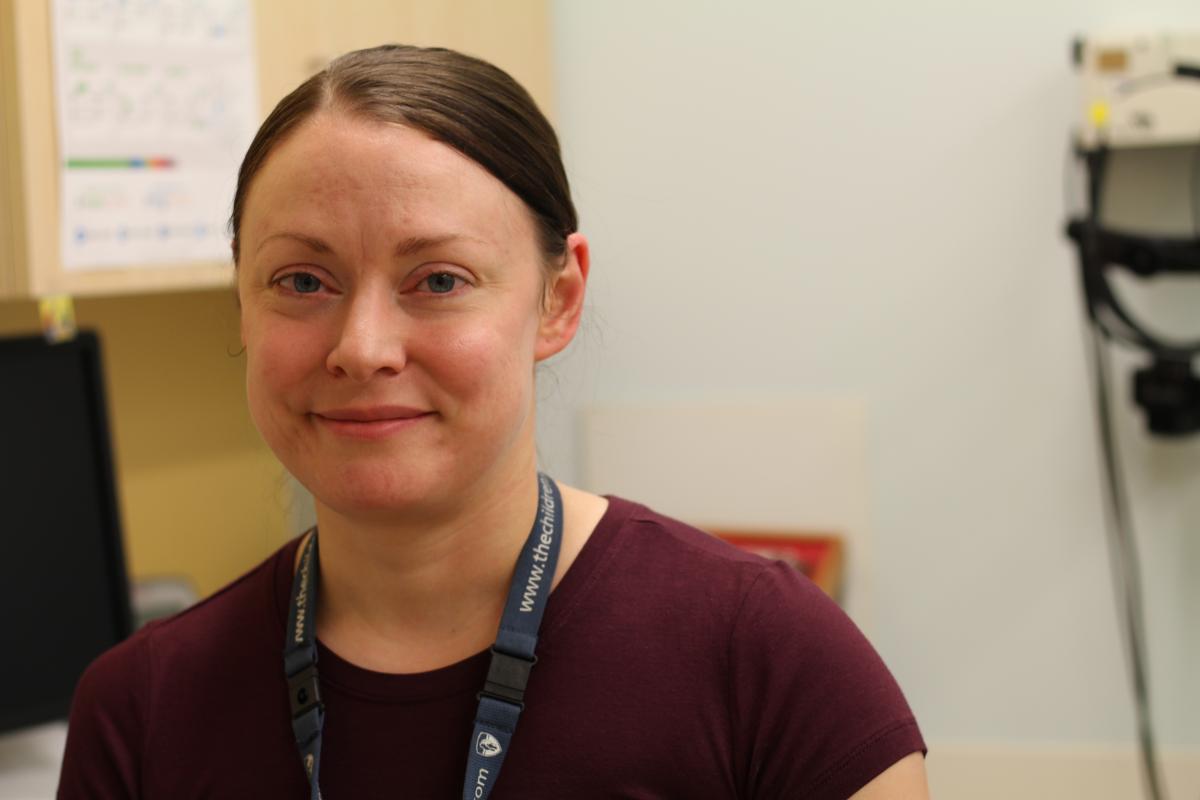
Marie-Claude Bélanger, Nursing Assistant
Marie-Claude Bélanger is a Nursing Assistant who loves the fast pace of a clinic environment. “I feel like there’s a lot of variety in what I get to see in a day,” she explains, “And I get to learn so much from working side by side with different members of the team.”
Having completed a 2-year vocational nursing program, Marie-Claude is trained to complement the work of a larger team by performing key tests and exams that are crucial to the patient’s visit. Over her nearly 8-year career at the Children’s, she’s worked in a number of different departments. More recently, however, she spends the majority of her time in Ophthamology, where she helps with triaging patients and conducting a multitude of eye exams before patients see other members of the team. While it can sometimes be challenging to conduct precise and uncomfortable eye tests on young patients, Marie-Claude says she’s learned a trick or two along the way. “We use a lot of toys, jokes and funny techniques to distract and calm patients down,” she says. “And whenever needed, we’ll give a patient some tips to practice for the next visit. We literally clown around to make the exam a success!”
Beyond the perk of having a regular 9 to 5 schedule, Marie-Claude says being able to see patients leave the clinic with better vision than when they first came in is the most rewarding part of her work. “To see patients happy about their new glasses, or leaving knowing their vision has improved after a surgery, that’s the whole point. I’m happy to be able to see that progress.”
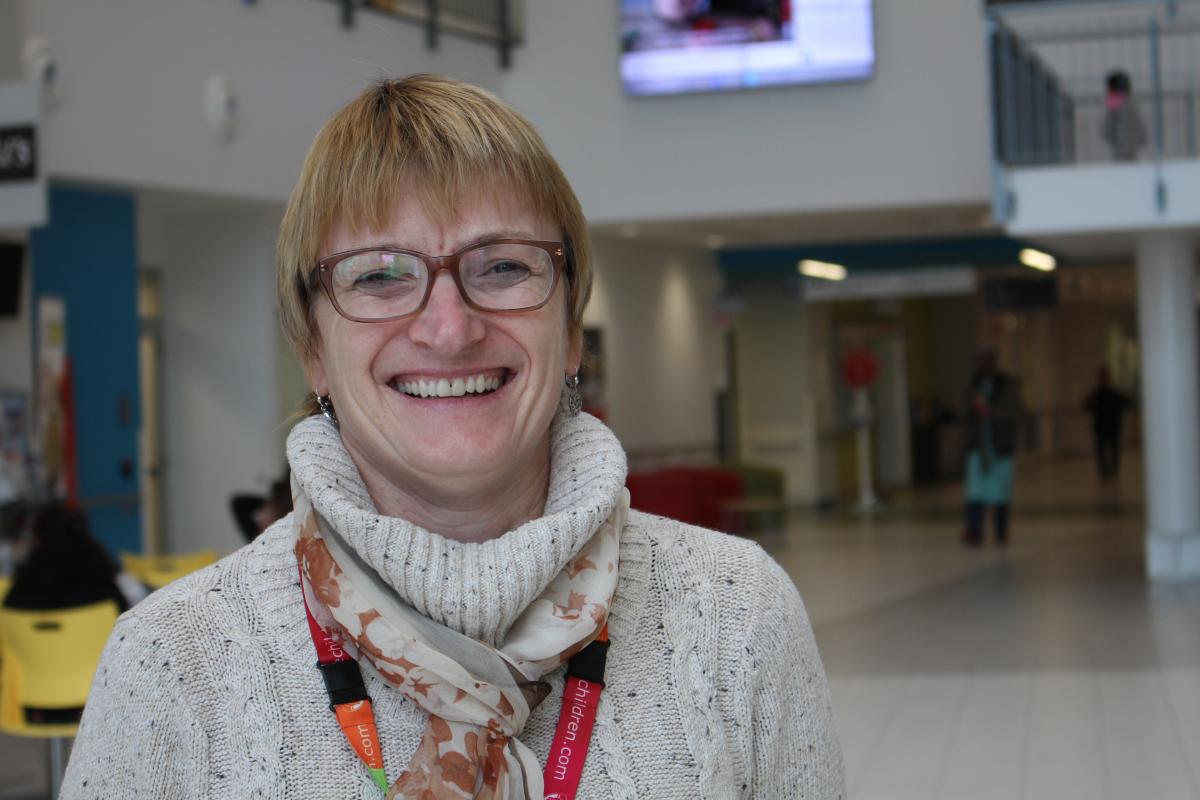
Sharon Taylor Ducharme, Clinical Practice Consultant and Project Manager
When nursing teams are faced with major projects, they call on Sharon Taylor-Ducharme’s expertise as a clinical practice consultant and Project Manager to help move their plans forward. Having worked at the Children’s for over 27 years, Sharon is able to blend her knowledge of continuous quality improvement with her previous nursing experience to speak the same language as the teams she’s helping. “I think it lends a bit of credibility to my role,” she explains, “Because of my experience, I understand the work processes and concerns of frontline workers and I can usually anticipate the impacts projects can have on patients.”
Having completed a Master’s degree in Human Systems Management at Concordia University in 2009, Sharon says the project she’s learned the most was also her biggest: planning the Children’s transition to the Glen site in 2015. “That was a major challenge,” she says. “I learned so much about how every department interacts with others and about how to manage a very big process,” she says. These days, Sharon is called on to assist with a number of projects involving senior managers, clinical leaders and frontline staff. “Most of my projects involve improving workflow processes, introducing new equipment or data management systems and dealing with the change that inevitably accompanies new practices,” she explains.
While her role can be challenging, Sharon says it keeps her curious and has allowed her to step outside of her comfort zone – something that she may not have otherwise done had she not gone back to school. The most rewarding part, she says, is seeing teams complete a project, having learned what they would approach differently the next time and how they can sustain their changes. “If I’ve done a good job coaching a team, they reach a point where they’re independent and autonomous and they can do their next project without me,” she says. “I really thrive on that.”





